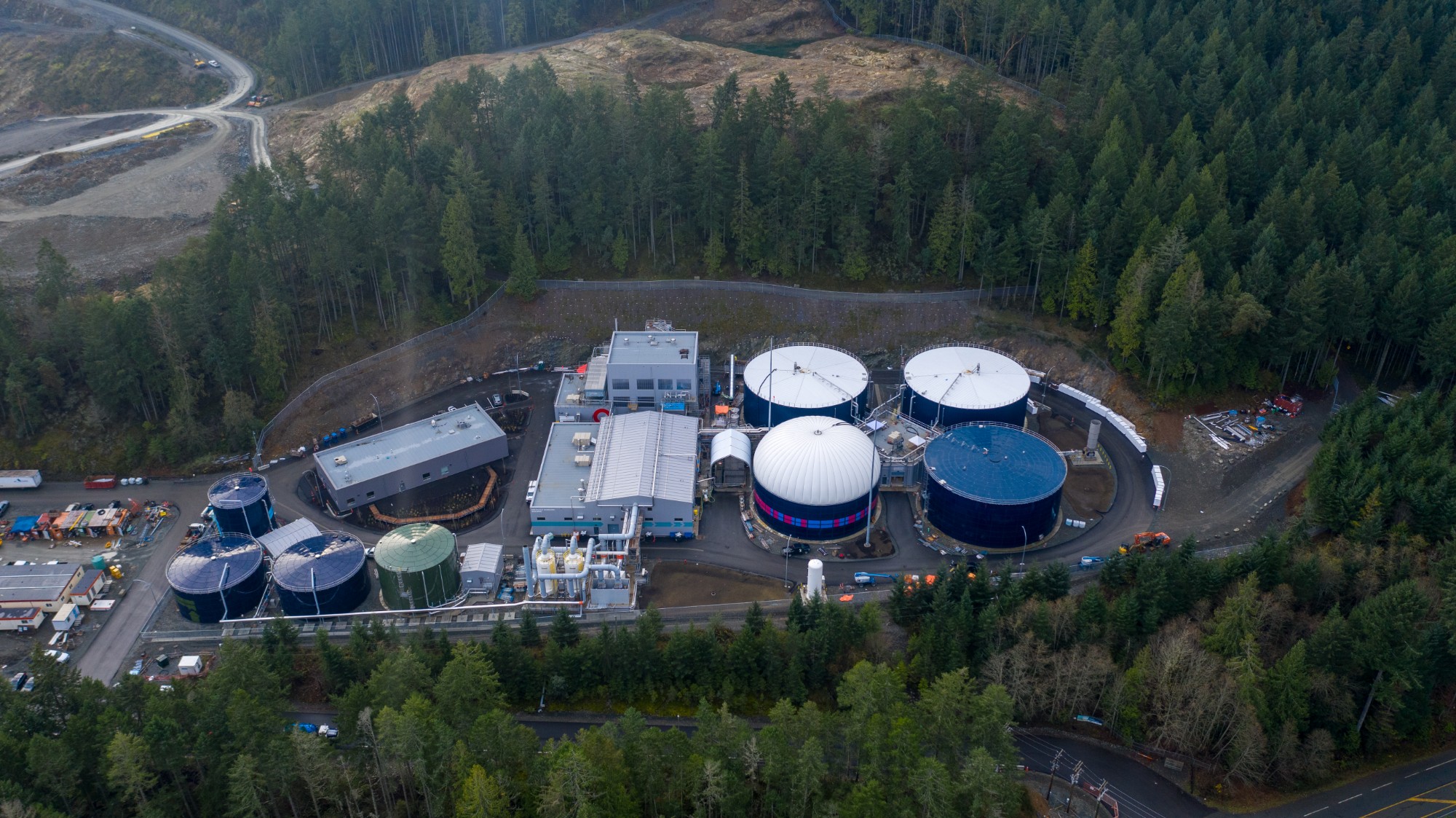Collaborating for a greener future

With more than 40 years of experience in the design, construction, and management of all types of environmental infrastructure projects and treatment facilities, I have found that the project delivery method makes a significant difference in whether these projects reach successful completion. As municipalities across North America continue to look at ways to reduce our impact on the environment, many are thinking of adding organic waste processing/biogas facilities to provide an addition to conventional sources of energy. However, getting these costly and complex projects completed will be a challenge for owners that aren’t prepared to consider collaborative contracting—a new way of delivering complex projects.
"The traditional design-build-operate-maintain (DBOM) procurement style has driven questionable outcomes for both municipalities and DBOM proponents, especially with respect to risk transfer and the associated price implications. Finding ways to build better together, such as transitioning towards collaborative contracting, will facilitate the development of more of these facilities sooner and at a reasonable price point. We need to not only be innovative in the types of facilities we develop but also in how we develop them, in order to drive social and environmental value." Tej Gidda, Vice-President and Global Leader - Future Energy | GHD
What is Biogas?
Biogas is a renewable source of methane gas, created when organic matter breaks down in an environment free of oxygen. You can use a broad range of organic materials, including livestock manure and crop residue, food waste, organic material from landfills, and biosolids from wastewater treatment facilities as feedstock. Biogas, which can be upgraded to renewable natural gas (RNG), is used for heat, electricity, and transportation fuel.
According to the Canadian Biogas Association, there are 279 biogas and renewable natural gas projects in Canada as of May 2020. These projects are good for the environment and help us ensure that we are recycling valuable residual waste streams and nutrients instead of wasting them, meaning they will continue to be of interest. More project initiatives will be developed in the coming years as the pressure on municipalities to further decarbonize our society will increase. But how are municipalities going to afford to build these projects, which can be quite costly?
The Case for Collaborative Contracts
The traditional Public-Private Partnership or P3 delivery model no longer works for many municipalities. The risk profile, scale, and complexity of biogas and other environmental infrastructure, coupled with the rising cost of material and equipment means that many projects are not getting built because they are coming in at such a high price point and well over budget.
We’re also seeing that a lack of engagement with the design partners in the very early stages of an environmental project is leading to more challenges during construction when using a P3 delivery method. Projects are moving more slowly than they have in the past, increasing the likelihood that they won’t get completed due to price escalation. On top of this, the building industry isn’t willing to accept the level of risk – both during the construction phase and once operational.

A New Way to Get the Job Done
Biogas projects are relatively new but fortunately, there are similarities with other types of environmental projects, such as wastewater treatment and biosolids handling plants. This means that Bird is prepared to handle them. Bird has also been actively using alternative delivery models to improve collaboration and productivity, reduce costs, and respond to challenges more effectively.
One delivery method that’s working well for municipalities with environmental projects is called Integrated Project Delivery (IPD). IPD differs from other methods in that it’s extremely collaborative. The project owner and the construction and design partners work as one team from a very early stage, allowing the team to reduce costs and provide the owner with a more accurate schedule and budget. IPD projects are open book, with Bird tracking and reporting to the owner to demonstrate both cost and value.
“Municipalities would be well-served to investigate different approaches to advancing important decisions on infrastructure investments related to biogas and RNG projects. Municipalities are at a critical juncture and can benefit from increased collaboration to enable biogas and RNG in their communities.” Jennifer Green, Executive Director | Directrice générale Canadian Biogas Association | Association canadienne de biogaz
IPD culture is empowered, collaborative, and communicative, making it ideal for the deployment of Lean tools and techniques to eliminate waste during design and construction—important on any build but particularly critical on environmental projects. IPD also allows for the collective management of risk so these important projects can be successfully executed while managing the owner’s total cost. With a collaborative delivery model like IPD, there’s much more interest from the contracting and development community as the risk level is more equally distributed among all project partners compared to carrying out a traditional P3.
Bird has a strong profile of completed and ongoing IPD projects both for buildings and for more process-oriented facilities like food and beverage processing plants, and water and wastewater treatment plants. We are currently working on two environmental IPD projects in B.C., including one with First Nation involvement. Using IPD, the First Nation is at the table with all other stakeholders early in the project, including representatives from Indigenous Services Canada, the government department that is supporting the funding of the project. With IPD projects, everyone can table questions and share ideas for a successful project while also receiving recognition for their input, rather than a traditional top-down communication approach.
The bottom line is that collaborative contracting allows owners to be fully involved in the design and construction of their facilities, select the team they want, and get the facility they want at the actual price rather than at an inflated cost. Ultimately, it gives them more control. However, most municipalities have procurement policies and procedures in place that have not been fully adapted to work under a collaborative contracting framework. Further hampering adoption is the fact that provincial and federal funding is not yet completely aligned for the use of collaborative contracting.
"The Integrated Project Delivery Alliance (IPDA) recognizes there is still work to be done to ensure all involved market entities understand the positive impacts a collaborative contracting model can have on project delivery, especially when planning for complex environmental infrastructure such as organic waste processing. The Alliance is focusing on building awareness for collective success and emphasizing practices that have the potential to improve industry outcomes across Canada." Lynnell Crone, President | The Integrated Project Delivery Alliance
Clearing a Path for Change
Increasingly, people are talking about collaborative contracting as a way of doing business that fits with their values and their goals for the environment. By continuing this discussion, municipalities are figuring out how to structure their procurement processes and policies to allow for collaboration and learning lessons from others so they too can be successful moving forward.
My colleague Ben van Vree, business development director at Bird, and I have been speaking at conferences to get the word out about IPD and its benefits. There has been significant interest regarding alternative contracts from attendees at the various conferences we’ve recently spoken at, including those held by the Canadian Biogas Association (CBA), the Ontario Environment Industry Association (ONEIA), and the Solid Waste Association of North America (SWANA) in British Columbia among others.
As an industry, we must continue to promote alternative contracts, such as IPD, to not only increase the successful delivery of complex projects, but to support municipalities in their journey to decarbonize.
